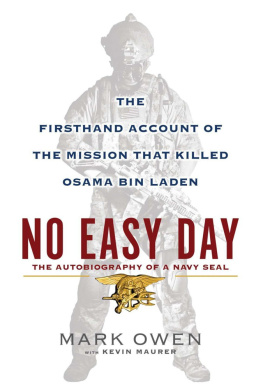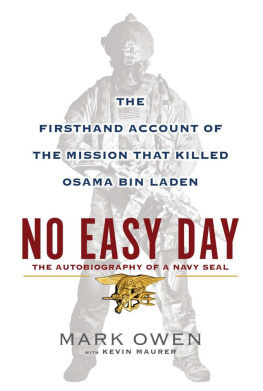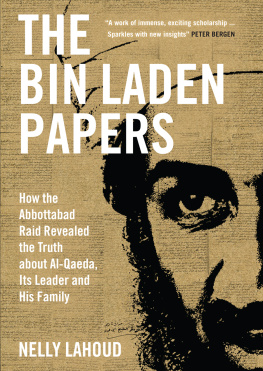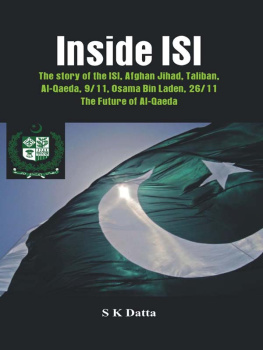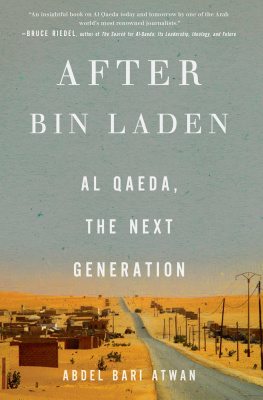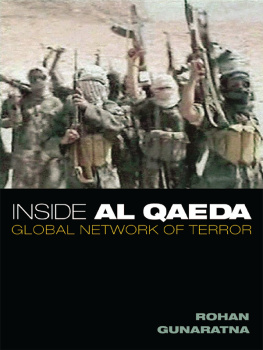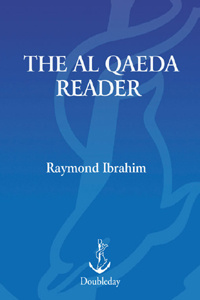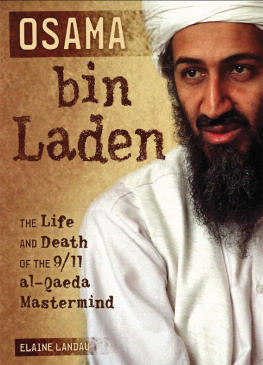The Secret History
of al Qaeda
Updated Edition
Abdel Bari Atwan
SAQI
To my family: Basima, Khaled, Nada and Kareem
In memory of my mother, Zarifa Atwan, who died in the Rafah refugee camp in the Gaza Strip in August 2003.
Contents
Acknowledgments
My thanks first and foremost go to Susan de Muth for her meticulous research. Dr Azzam Tamimi and Said Aburish provided invaluable input and useful feedback on the text. Thanks also to Haitham al-Zobaidi, Yasser al-Sirri, Dr Muhammad al-Masari, Dr Saad al-Faqih, Peter Bergen, Fuad Husayn, Hala Jaber and last but by no means least, to Pat Sundram, my personal assistant, and to the rest of the staff at al-Quds al-Arabi.
I also wish to thank my brother, Kamal Atwan, who funded my education. Without his support and encouragement throughout my life, I would not have achieved all that he made possible.
Many other people were involved in this project, they know who they are, and to them, also, thanks.
Preface
The suicide bombings that brought death and chaos to central London on 7 July 2005 were a savage reminder that al Qaeda still represents the most potent threat to Western security and stability in recent years. It is my opinion that Western governments in particular those of the US and the UK do not fully understand the level of this threat, why it has arisen or how to deal with it effectively.
As an Arab Muslim who has lived in London for thirty years, working as a journalist specializing in Middle Eastern politics, I believe I bring a unique perspective to the story of al Qaeda and its impact on Western civilization. I understand both Muslim and Western ways of life and am certain that cooperation, not confrontation, is the only way forward. If the West genuinely wants to remove the terrorist threat posed by al Qaeda it must first understand the nature and political roots of what has now become an ideological network with franchises all over the world. It must also consider how to deal with legitimate grievances and establish channels for meaningful dialogue.
This book seeks to make a contribution to this process by looking at the genesis, membership, ambitions, influence and strategy of al Qaeda in an objective and analytical manner.
I do not endorse or in any way support al Qaedas agenda. By going into many aspects of the network that have not been discussed in depth before, I am seeking only to explore and, where possible, explain and analyse. This book is a presentation of my first-hand knowledge of al Qaeda and its leaders and is the result of many years observation, study and experiences, visiting al Qaeda camps and interviewing key players.
The terrifying events in London proved that al Qaeda has changed and expanded, that it has a long-term strategy which it is patiently and doggedly pursuing.
Al Qaedas new structure, whereby small independent groups that subscribe to its ideology can form locally and operate with little or no reference to the core leadership, is not a sign that the organization is weakened as some optimistic commentators have suggested. Quite the opposite: by expanding horizontally, al Qaeda is rapidly becoming bigger and stronger. Its ideology and strategy are widely available on the Internet, making it very easy for any one of its branches or affiliated groups to operate strictly within its framework in any place and at any time, without the need for a licence or approval.
George W. Bush has often said that he sent American troops to Iraq to fight al Qaeda there in order to prevent the network from attacking the US itself. Two and a half years after the invasion of Iraq al Qaeda has managed not only to hurt US-friendly Arab countries with attacks in Taba and Sharm El-Sheikh in Egypt, Aqaba in Jordan and Casablanca in Morocco, but is casting its shadow of menace ever closer to the US itself via Istanbul, Madrid and London.
The US has already spent $450 billion on its military adventure in Iraq, but al Qaeda seems impervious to this costly war on terror. In fact, it has used this war for its own ends: Iraq has become its training ground and tactics honed on the streets of Baghdad have already been employed (thankfully unsuccessfully) on the streets of London and Glasgow in June 2007. American foreign policy is the best recruitment officer al Qaeda has ever had.
It is sadly ironic that in the name of spreading moderation in the Muslim world and isolating radicalism in order to starve al Qaeda of oxygen, the American and British governments have achieved exactly the opposite. In many ways al Qaeda has effected more change on Western societies than vice versa, provoking draconian legislation in Britain and the US and a change of government in the 2004 Spanish general election, to cite the most obvious examples.
The notion that Muslims hate the American people or Western civilization is dangerous and erroneous. What many do hate is American foreign policy, and they are not alone in that. To take one example, in May 2005 thirty-three leaders from Arab League and South American nations met for the first time in Brazil with the intention of forming new alliances to counter what they see as US global hegemony. In Europe, to take another, support for the US-led war in Iraq is less than 10 per cent in countries like Spain and Greece. Equally erroneous is the idea that the world is in the grip of a clash of civilizations. At this moment in history there is no Islamic civilization to speak of, only a preponderance of pro-Western corrupt dictatorships with little to speak of in the way of democracy or economic productivity.
The organization might have changed, but al Qaedas complaints and demands have not. Western leaders need to seriously consider these, not deny them, as the new Labour government has done with its stubborn refusal to accept that the attacks on UK soil are in any way connected with their support for the US project in the Middle East. Why did the Spanish people make that connection following the carnage on their transport system on 11 March 2004 and vote to change the government that had backed the US invasion of Iraq? Why, as Osama bin Laden himself asks, hasnt al Qaeda attacked countries like Sweden?
One does not have to be a genius or even a clever analyst to answer these questions. Osama bin Laden and Ayman al-Zawahiri have outlined these matters in the clearest possible terms and the grievances of the Muslim world that they use to justify their bloody attacks are long-standing.
Consider bin Ladens address to the American people five days before the 4 November elections in 2004. In it he describes the genesis of 11 September and states quite clearly that his campaign against the US started in 1982 when America permitted the Israelis to invade Lebanon and the American Sixth Fleet helped them in that I couldnt forget those moving scenes, blood and severed limbs, women and children sprawled everywhere. Houses destroyed along with their occupants and high-rises demolished as I looked at those demolished towers in Lebanon, it entered my mind that we should punish the oppressor in kind and that we should destroy towers in America.
In the same message, broadcast on al-Jazeera, bin Laden condemns the sanctions that led to the deaths of millions in Iraq and the greatest mass slaughter of children mankind has ever known, by Bush Sr, and millions of pounds of bombs and explosives hurled at millions of children also in Iraq by Bush Jr, in order to remove an old agent and replace him with a new puppet to assist in the pilfering of Iraqs oil and other outrages.


